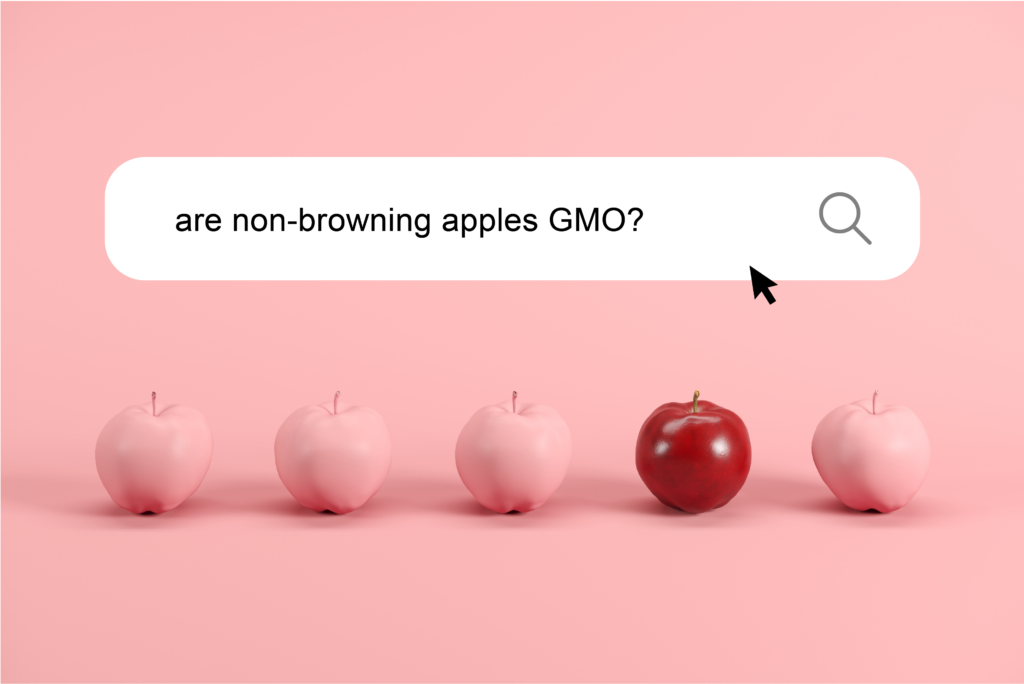
It's a classic case of mistaken identity.
Some common grocery store products have odd names or unique features, and they're mistaken for GMOs. But many are proudly non-GMO — and some of them are Non-GMO Project Verified!
The Butterfly helps shoppers find products that meet the highest standard in North America for GMO avoidance. To unmask the real GMOs, we bring you the truth about some of the most misunderstood products on the market.
Is Modified Corn Starch a GMO?
This might be the question we're asked more than any other. The confusion is understandable — the word "modified" is sitting right there.
In truth, corn starch might be GMO — but not for the reason you think.
 The "modified" in "modified corn starch" doesn't mean genetically modified. It means that the starch was changed in some way to make it more useful in food production. For example, if a crop is harvested, processed and milled into a powder, then treated so it can withstand higher temperatures, it has been changed from its natural state. But do those changes make it a GMO? Nope. None of those changes are genetic modifications. Products that are changed this way can be Verified by the Non-GMO Project.
The "modified" in "modified corn starch" doesn't mean genetically modified. It means that the starch was changed in some way to make it more useful in food production. For example, if a crop is harvested, processed and milled into a powder, then treated so it can withstand higher temperatures, it has been changed from its natural state. But do those changes make it a GMO? Nope. None of those changes are genetic modifications. Products that are changed this way can be Verified by the Non-GMO Project.
However, if an organism's DNA has been altered in a lab, creating combinations of plant, animal or bacterial genes that do not occur in nature? Those kinds of changes — modifications to an organism's DNA — result in GMOs, which we believe should be clearly labeled and segregated from the food supply. And it’s all too possible that some corn starch products are derived from GMOs.
The GMO risk in corn starch is because the product is made from corn, which is a high-risk crop. At least 92% of the corn produced in the U.S. is genetically modified. Any product that contains corn as a major ingredient must comply with the Non-GMO Project Standard requirements, which include ingredient testing, tracing and segregation.
Where's the synbio?
Alternatives to traditional animal proteins are all the rage. The market for meat alternatives — from plant-based to cell-cultured — is already booming, and forecast to expand another 11.2% by 2027. With so many products to choose from, how can a concerned consumer steer clear of GMOs?
The Non-GMO Project has hundreds of Verified alternative proteins for you to choose from — you can browse Verified products to find something that suits your fancy.

With its massive media coverage (not to mention its (in)famous origins in genetically modified soy and synthetic biology) the Impossible Burger could give the impression that all meat alternatives are made with GMOs. In fact, some of the biggest brands in alternative proteins, including products made by Beyond Meat, Impossible Foods' main competitor, are Non-GMO Project Verified. (There are other great verified brands too, including Before the Butcher, Field Roast and Lightlife, to name a few.)
Imposters in the produce section
Fresh fruit can seem simply too good to be true (particularly at the height of berry season). Add in handy characteristics such as seedlessness, and the thoughtful shopper starts to wonder if these products are GMOs. Fruit is made to scatter seeds far and wide, but watermelons and grapes both appear in popular seedless versions? How can that be?!
Happily, neither the seedless watermelon nor the grape is a GMO.
Thompson grapes, the most common seedless grape variety, can be traced back as far as the Ottoman Empire, long before the advent of modern biotechnology. Flame seedless grapes, the most common red seedless variety, are the result of traditional crossbreeding methods of several existing cultivars, including the Thompson.
Seedless watermelons are a sterile hybrid produced through skilled breeding. It's a bit like cross-breeding a donkey and a horse to create a sterile mule — a reproductive dead end, but unique and useful nonetheless. Seedless watermelons may have small, white "seedlets" that aren't mature enough to grow new plants (and don't inspire the awkward "ptooey!" of full-grown, black-husked seeds).

To date, the Non-GMO Project's research team — who track more than 460 biotech developers around the globe — have found no reports of genetically modified watermelons on the market or in development.
Meaning you can snack with wild abandon.
Non-browning apples — GMO or no?
What about pre-cut fruit, particularly kinds that resist browning? That depends on the product.
There is a non-browning GMO apple on the market — the Arctic Apple. Arctic Apples come in Golden Delicious and Granny Smith varieties, with Fuji and Gala versions in development. Packaged servings of Arctic Apple from a grocery retailer should be labeled with a bioengineered food disclosure, but other food service venues don't require it and the appearance of the disclosure can vary widely.
What You Need to Know About Bioengineered (BE) Food Labeling
At the Non-GMO Project, we wonder why the Arctic Apple was even produced when there is a perfectly delightful non-browning non-GMO apple available — the Opal apple. Opals were created through traditional cross-breeding methods, producing a crispy, sweet and slightly tangy fruit with naturally low levels of the enzyme that causes apples to turn brown. The Opal apple is proudly Non-GMO Project Verified, and is grown in our home state of Washington.
GMOs need not apply
In separating GMOs from naturally overachieving crops, we found that some of those "too good to be true" foods are simply too good to be GMOs. They are products of nature's bounty, skilled breeders, or a combination of the two.
New GMOs and products of synthetic biology are entering the market at an alarming rate. With so many choices to be made every day, it helps when some of those choices are just a bit easier.
That's where we come in.
The Non-GMO Project has you covered, from the Product Verification Program, ongoing monitoring of the biotechnology sector and the latest news you need to keep GMOs out of your shopping cart. We're proud to help you locate the kinds of non-GMO choices you want for your family, and for generations to come.
